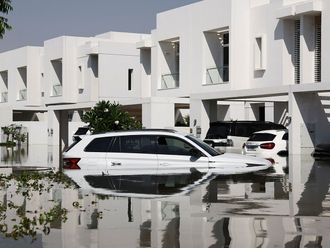Davos: "After Copenhagen we need a robust and substantial agreement in Mexico," said Felipe Calderon, President of Mexico, who is the chair of the next round of the world's negotiations to find a solution to climate change.
"We need an economic solution, which we negotiate by mutual consensus," he said, making absolutely clear the agreement he wants to see happen in Mexico needs to be both tough and measurable so it can be enforced transparently.
He was speaking at the WEF in a session on what is required to find success after Copenhagen. He spoke of how he would welcome smaller groups of nations, or industry groups, moving ahead on their own to cut emissions, as long as they report back to the main negotiations on what they have achieved.
"Smaller groups of like-minded countries, or trade groups like shipping, steel or power, may well find ways to move quicker than the whole. This is not a problem," said Calderon, who added the main process run by the UN needs to keep going as the dominant forum.
Such specialist groups might include the G5 of India, China, South Africa, Brazil and Mexico, or the existing working groups on automobiles, energy efficiency, cooking stoves and black-carbon, which are already backed by the UN's Framework Convention on Climate Change.
Openness
The Bali Action Plan, and the Kyoto Protocol are also two existing processes which are part of the overall process coordinated within the UN, and Calderon said both are important tracks which need momentum to keep up. Calderon plans to hold several rounds of meetings before the November summit in Mexico.
"We do not have to do all this at the last minute, and we will get better results" he said, regretting the all-night sessions in Copenhagen which went on for two days.
Calderon was well aware of the political problems that derailed any hope of the hoped-for binding agreement in Copenhagen. He wants to readdress these political and economic differences which have become part of the carbon debate, skewing the scientific evidence which Calderon described as "overwhelming".
To this end, he sought a new spirit of openness and transparency covering both negotiating aims and the political problems they involve.
"We have to re-establish trust between the partners, many of whom have very different positions ranging from small island nations, developing and developed nations. I will insist on good faith in negotiations and we need to make sure that nations do what they promise. We will need to set up institutions to monitor results and to report back to all the participants."
He paid tribute to what had been achieved in Cop-enhagen, saying it was a good start.












